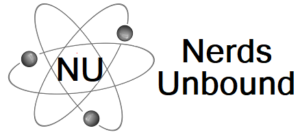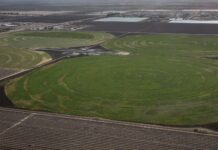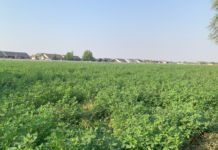Expected Funding Opportunity Will Facilitate Community-Scale Geothermal Heating and Cooling Systems that Can Cut Emissions, Reduce Energy Burden, Boost Resilience
U.S. Department of Energy
Heating and cooling represent significant energy needs for American homes and businesses—for instance, more than half of U.S. home energy use is for heating—and contribute to greenhouse gas emissions through the direct use of fossil fuels and electricity use. To help reduce energy burden—the percentage of gross household income spent on energy costs—and fossil fuel dependence for American communities, the U.S. Department of Energy (DOE) intends to issue the Community Geothermal Heating and Cooling Design and Deployment Funding Opportunity Announcement (FOA).
Geothermal district heating and cooling systems use geothermal energy to provide climate control to buildings, including residences and businesses, through an underground distribution network. Such systems are relatively common outside the United States, but have a comparably small presence domestically. The intended FOA will support community coalitions with community, workforce, design/analysis, and deployment expertise to implement such systems.

“By enabling communities to design and deploy community-scale geothermal heating and cooling systems, we can expand equitable energy access and foster greater local participation in the energy transition,” said Principal Deputy Assistant Secretary for Energy Efficiency and Renewable Energy Kelly Speakes-Backman. “Wider adoption of these systems can go a long way in decarbonizing the building and electricity sectors and support the Biden Administration’s goal of reaching net-zero emissions by 2050.”
The FOA will help communities implement technology that can reduce energy burden and fossil fuel dependence, increase grid resilience and stability, and improve environmental quality. The initiative also encourages innovative approaches to community-scale heating and cooling.
The FOA is expected to support specific community-scale objectives regarding district heating and cooling systems in urban, suburban, rural, remote, or islanded communities:
- Increase deployment: Deploy new or retrofitted geothermal, or geothermal-hybrid, district heating and cooling systems in districts, neighborhoods, and communities
- Advance environmental justice: Identify solutions for environmental justice conditions, such as cumulative environmental pollution and other hazards; for underserved and disadvantaged communities; and for community members who have historically experienced vulnerability due to climate change impacts.
- Grow the workforce: Assist communities to develop career and technical education and workforce transition initiatives to design, install, inspect, operate and maintain new energy systems such as geothermal heating and cooling.
- Share best practices: Develop case studies about projects, including technical and economic data, to illustrate how projects can be replicated by communities throughout the United States.
- Provide data: Publish data and information about geothermal district heating and cooling system deployment to demonstrate the success of such systems in a range of environments and geographies.

GTO is providing a Teaming Partner List where interested parties may include information about their expertise that can be used by potential applicants or entities interested in partnering with other applicants for the intended FOA.
This is a Notice of Intent (NOI) only. EERE may issue a FOA as described herein, may issue a FOA that is significantly different than the FOA described herein, or EERE may not issue a FOA at all.
For more information about this potential opportunity, read the full NOI. For more information about geothermal energy, visit GTO’s website.
This article was originally published on Energy.Gov, you can read the original article here.










